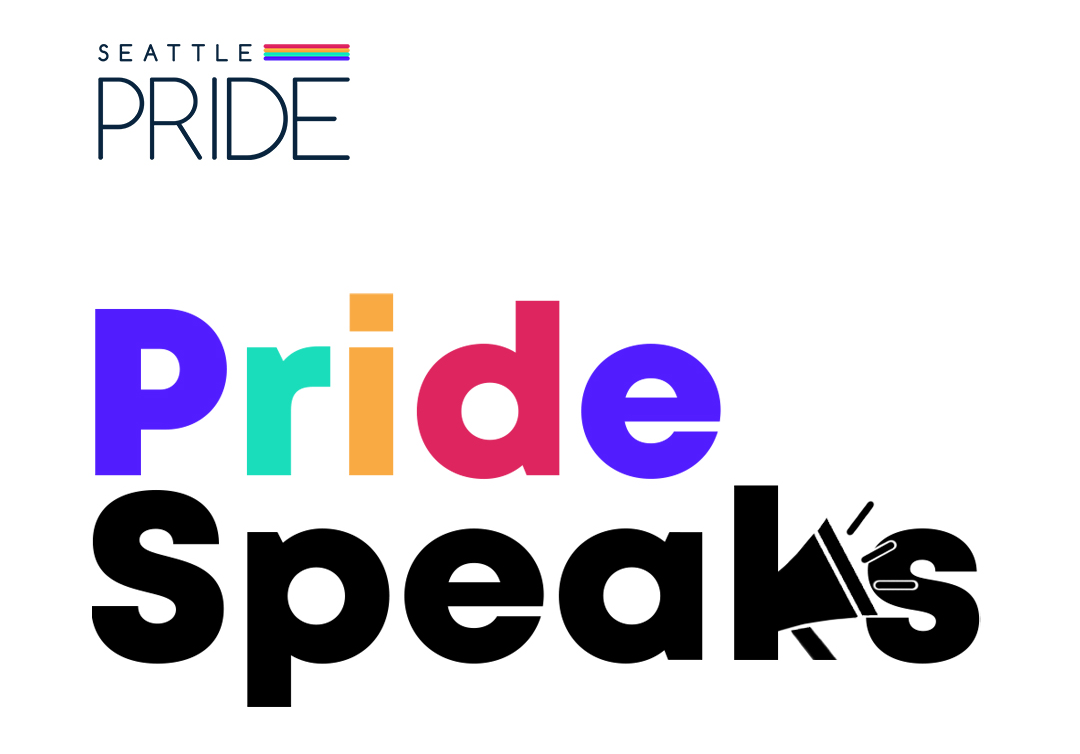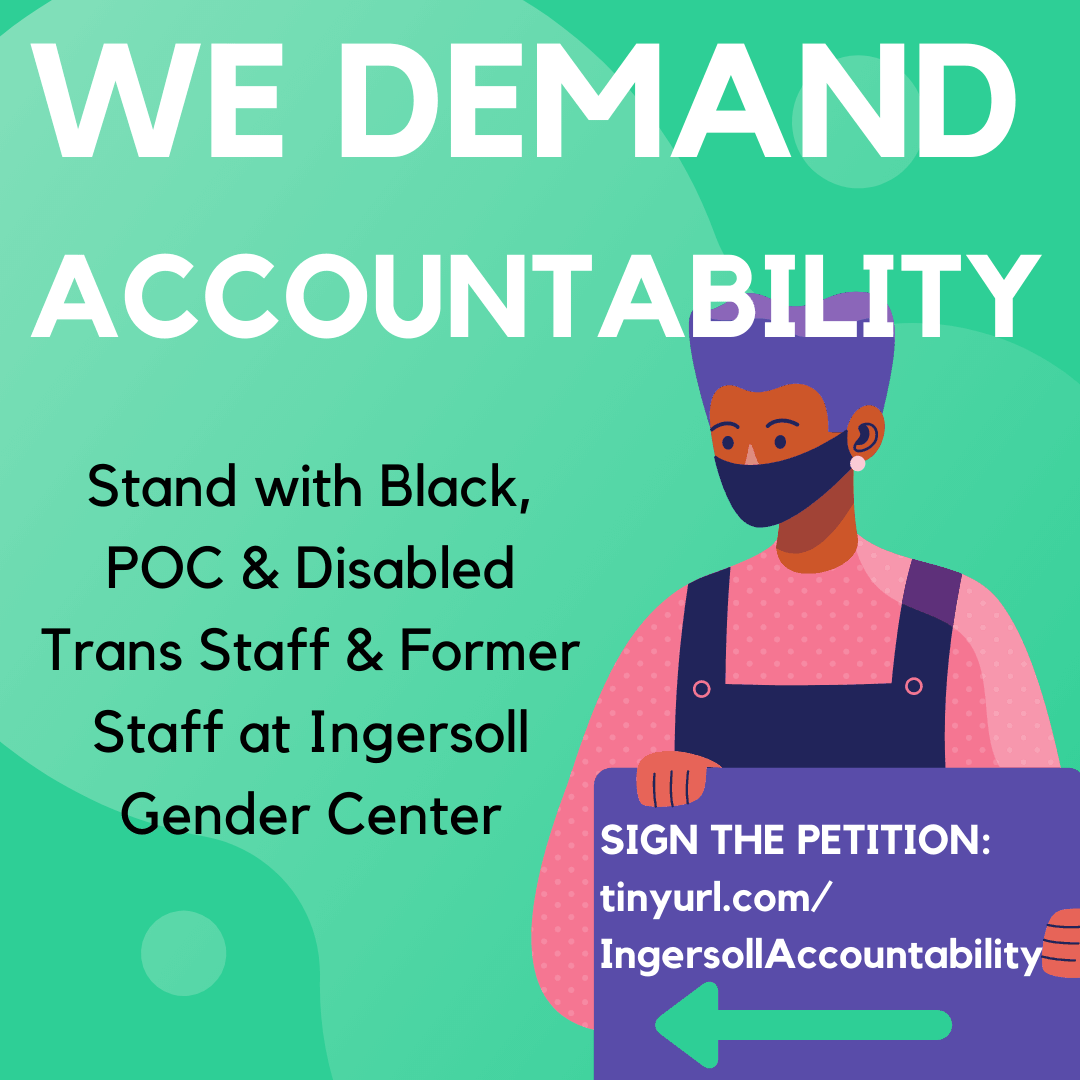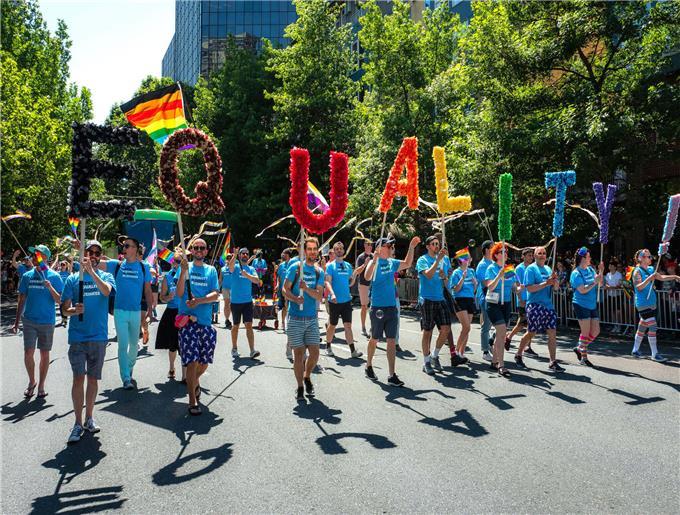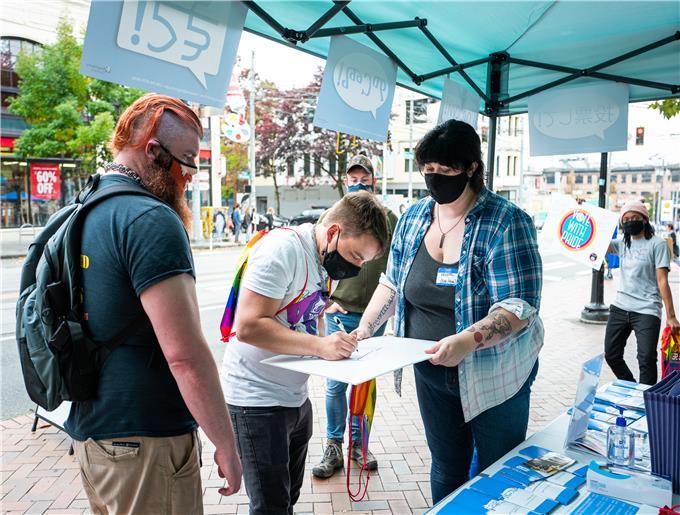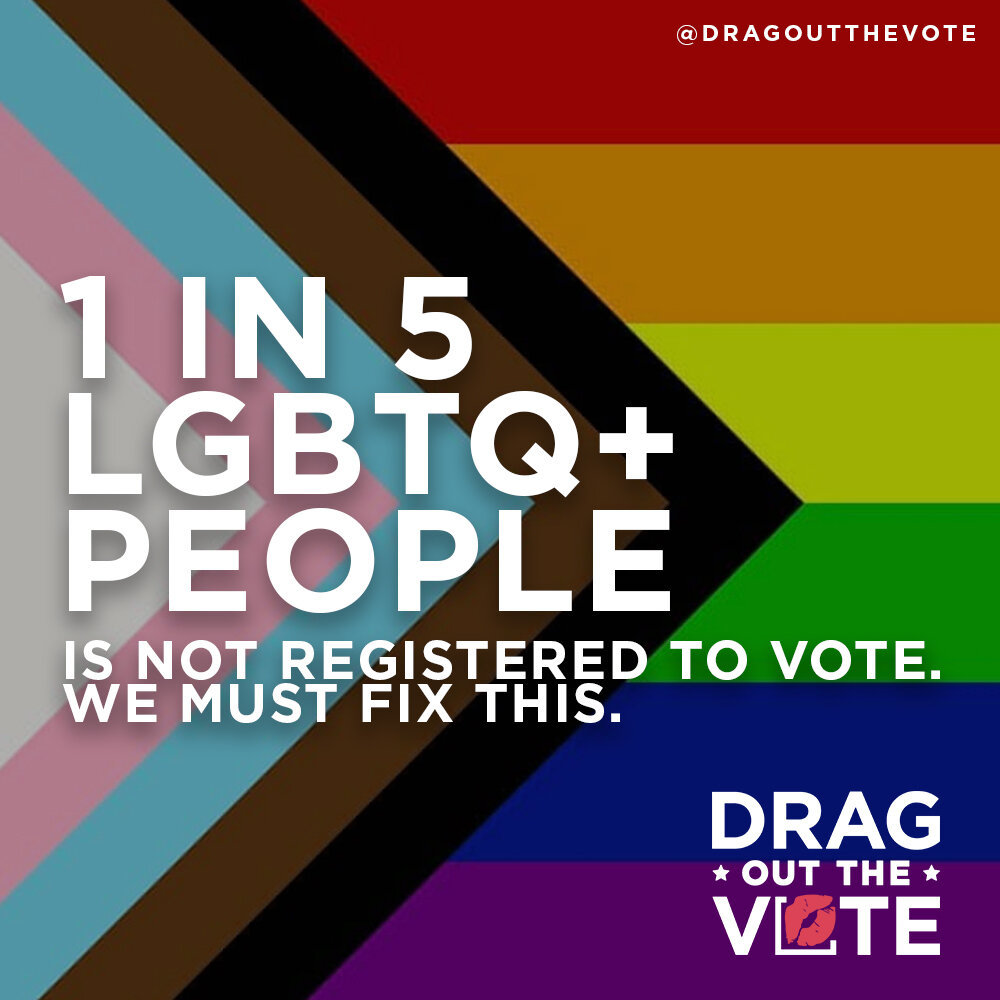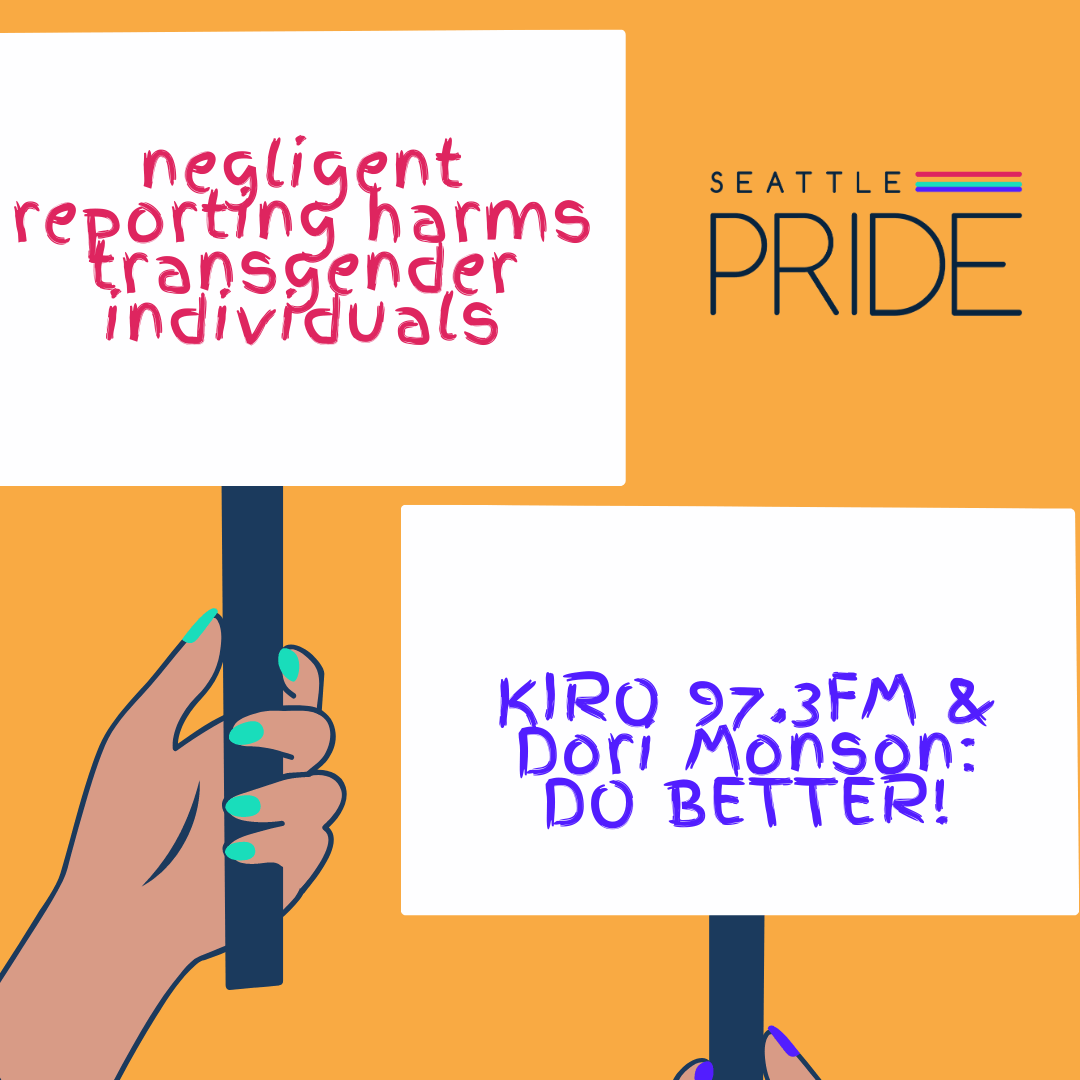
Seattle Pride Speaks Out Against Transphobic Reporting
Mar 16, 2021 | Seattle Pride
It should come as no surprise that transphobia runs rampant in our society and is depicted and perpetuated through trans representation in media. We are disappointed to have to release the below statement regarding a KIRO 97.3 FM story on the Dori Monson Show that implies transgender people are dangerous and to be feared.
Stories like this matter because trans people are disproportionately at risk of being attacked and killed as victims of hate crimes. 2020 has been documented as the worst year on record for transphobic violence with a total of 44 homicides of transgender and non-binary individuals – the highest number on record since the Human Rights Campaign began tracking anti-trans violence. We must work together to eliminate the stigma, discrimination, and hatred experienced by the trans community, and to make the world a safer place for all of us.
Seattle Pride's Statement
Dori Monson’s March 10th story, DOC employee reports men are claiming to be women to transfer prisons airing on KIRO 97.3 FM and published on MyNorthwest.com, is irresponsible and sloppy journalism aimed at generating “click bait” at the expense of the transgender community.
As stated in the article, the details shared by an anonymous individual was not confirmed nor denied by the Women’s Correctional Center or the Department of Corrections (DOC) before the story ran – meaning the information provided in the story was unverified at the time. However, that same day the DOC released a staff memo stating the details cited are false, and outlines accurate information for each of the allegations provided by the anonymous source.
Seattle Pride is calling for KIRO 97.3 FM and Dori Monson to issue an immediate update to the story with this information from the DOC regarding its prison assignment policies of incarcerated transgender individuals and to apologize to the transgender community which continues to be put at risk due to their negligent reporting.
The story as initially reported, highlighting an anonymous claim rather than researching DOC policy, inaccurately perpetuates the belief that transgender people are to be feared and pose a ‘safety risk’ to cisgender people through false allegations – the same narrative used to argue for bathroom discrimination. In fact, this story is not about transgender people, though the language incorrectly implies that those who are transgender may be fraudulently claiming to be. As stated in the DOC memo, there has not been a reported incident which would justify the concerns shared by the anonymous employee.
Mr. Monson’s report -- and a fear mongering Facebook post which he chose to share two days earlier on International Women’s Day -- follows on the heels of his transphobic Tweet during the gubernatorial debate less than six months ago in which he mocked the very real issue of gender identity resulting in his suspension and an eventual on-air retraction. It is unacceptable to continue to produce stories which perpetuate inaccurate, harmful, and hateful beliefs about the trans community, and clearly Mr. Monson – and KIRO 97.3 FM – have not taken this issue seriously.
How You Can Help
It is critical that we work together to call out incidents of transphobic representation in media and use them as an opportunity to educate people who are creating the problematic content, but also teach everyday consumers of media about the impact of inaccurate and dangerous portrayals of trans individuals.
Here are a few ways you can help address the above-mentioned story and any future content that is harmful to our transgender community:
Contact the media source, outlet, studio etc. and let them know! Be sure to clearly explain the transphobic nature of the content and define any terms that they might not understand (ex. Deadnaming). If the form of media can be edited and updated, don’t be shy about requesting amendments.
Point the media source to references for future content. GLAAD has us covered here with their Media Reference Guide which is meant to used by journalists and creators in the media entertainment industry who want to tell LGBTQIA+ people’s stories fairly and accurately. Here’s the link: https://www.glaad.org/reference
Explain to friends and family why the content is problematic. Speak your truth into ears that can hear you – the more trusted allies you can kindly educate about problematic representation the louder our voices will become together. If they are interested in helping, offer to share resources and guide them through the process of becoming an advocate.
Sign up for advocacy alerts! If you haven’t already, sign up for our advocacy alerts HERE where we’ll alert you to any LGBTQIA+ issues that need your support and action!
For Further Reading & Education
If you’re interested in learning more about transgender representation in media and more about our transgender community, please start with the below resources.
Transgender Representation in Media
General Resources
- Between the (Gender) Lines: the Science of Transgender Identity (Harvard University)
- Gene variants provide insight into brain, body incongruence in transgender (Science Daily)
- The Science of Being Transgender ft. Gigi Gorgeous (YouTube)
- Understanding Gender (Gender Spectrum)
- National Center for Transgender Equality


